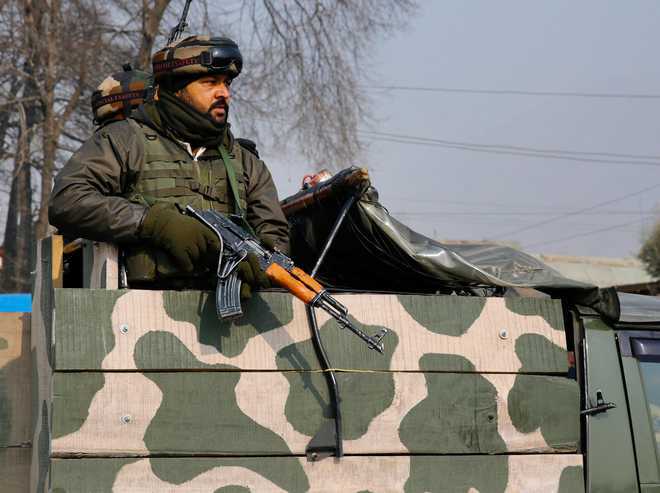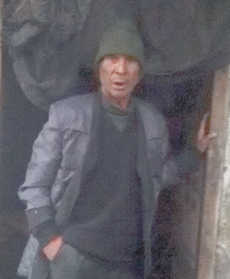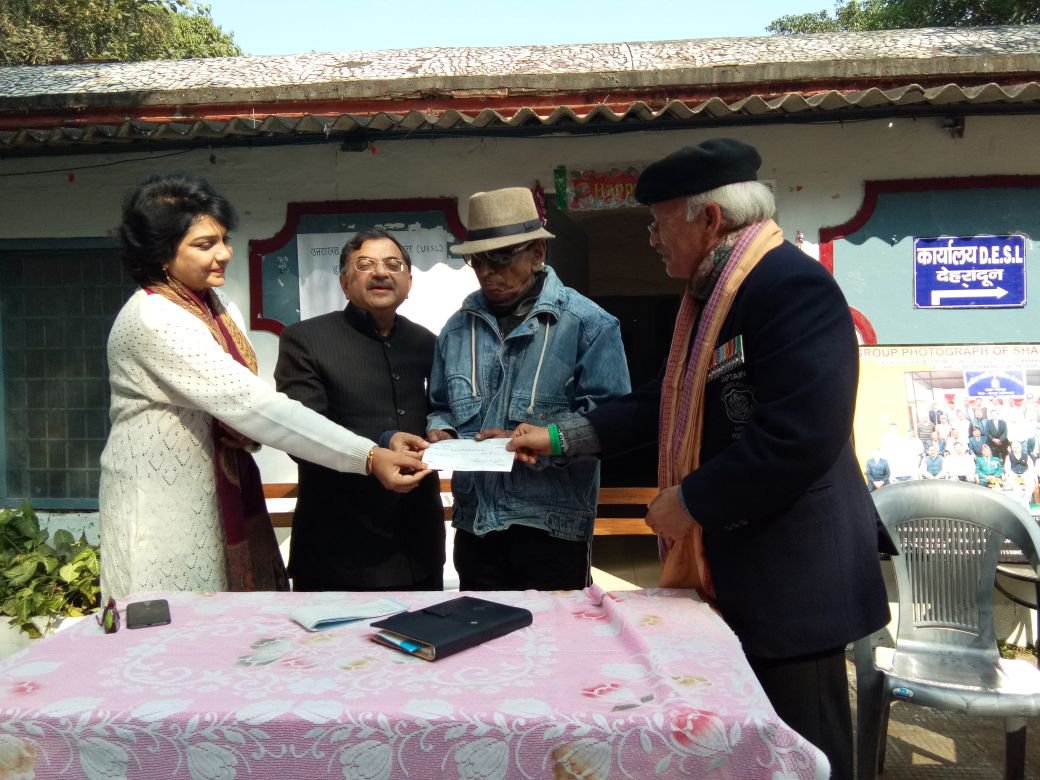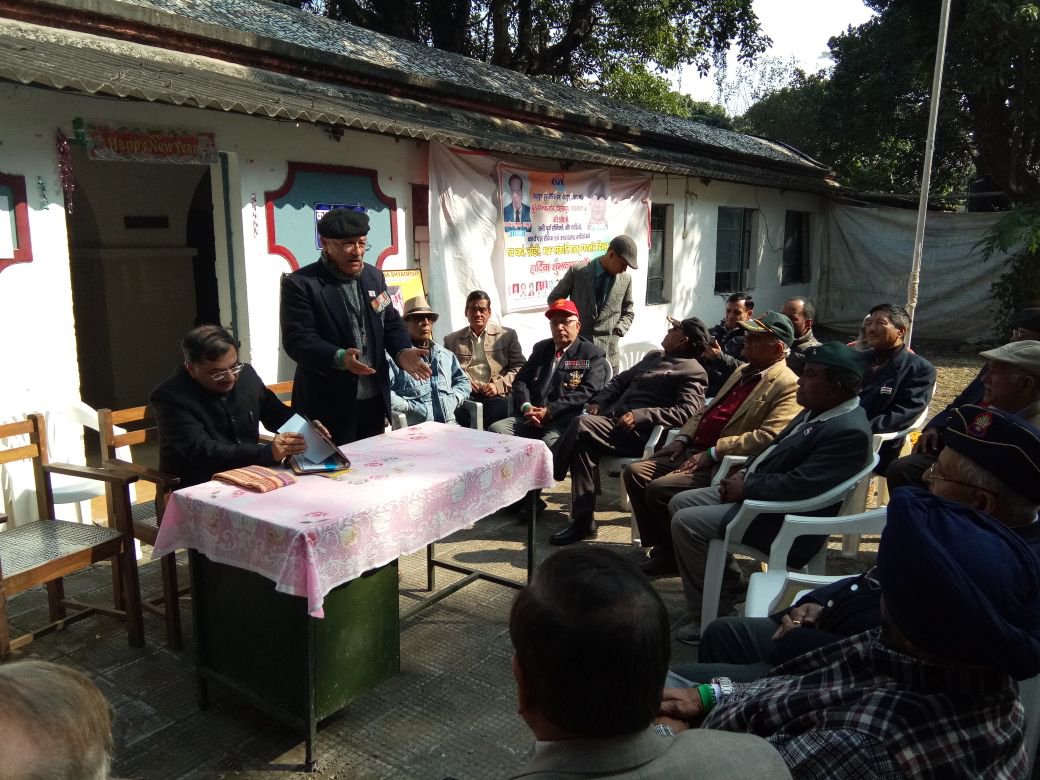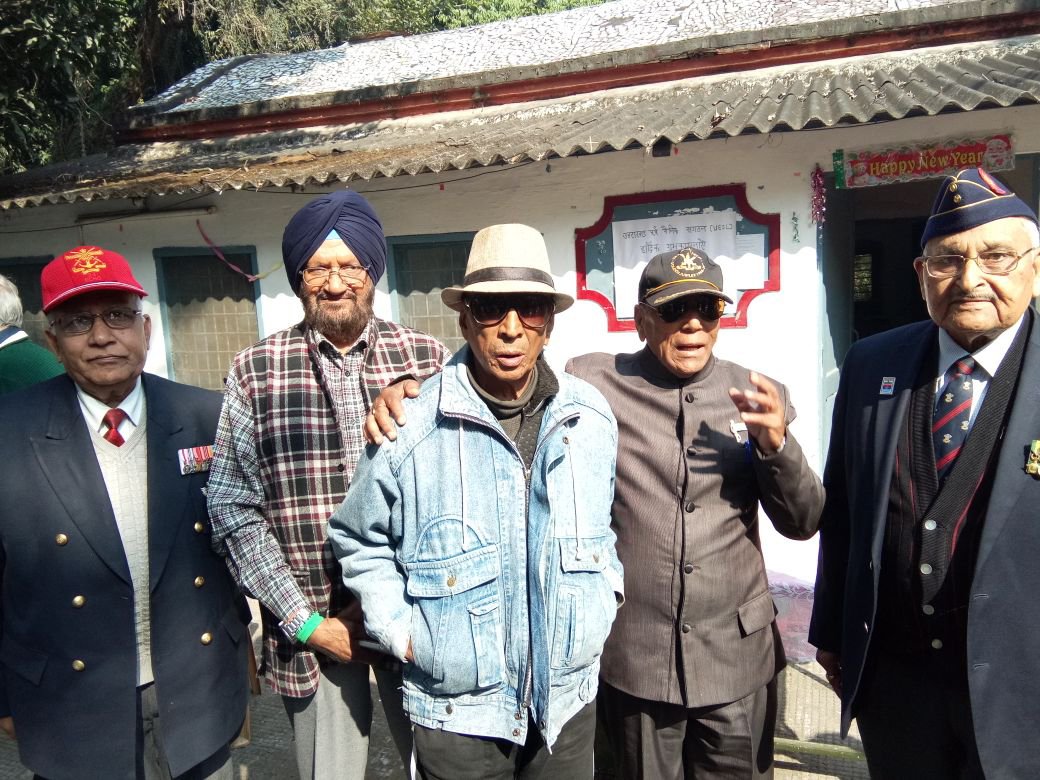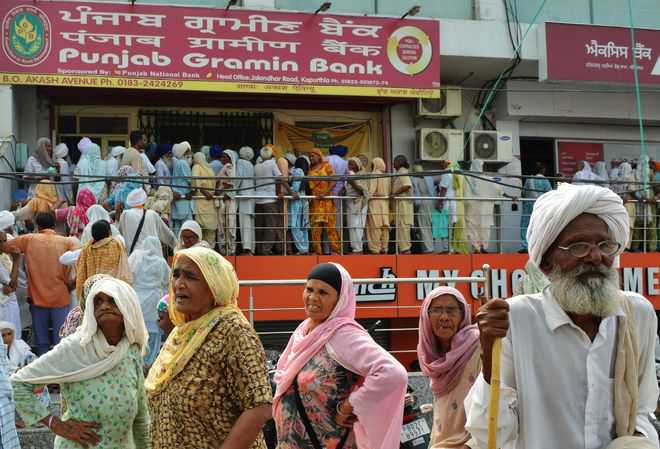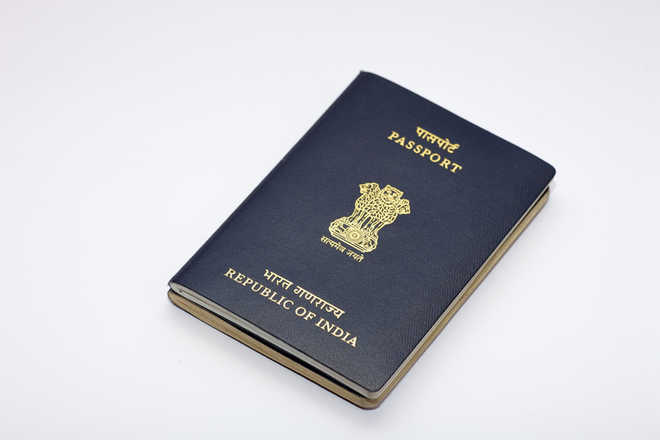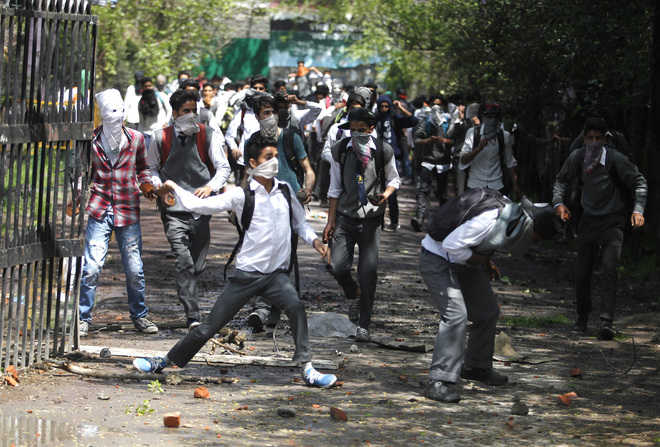US President’s censure notwithstanding, Pakistan continues to mainstream terror groups. India cannot let down its guard.
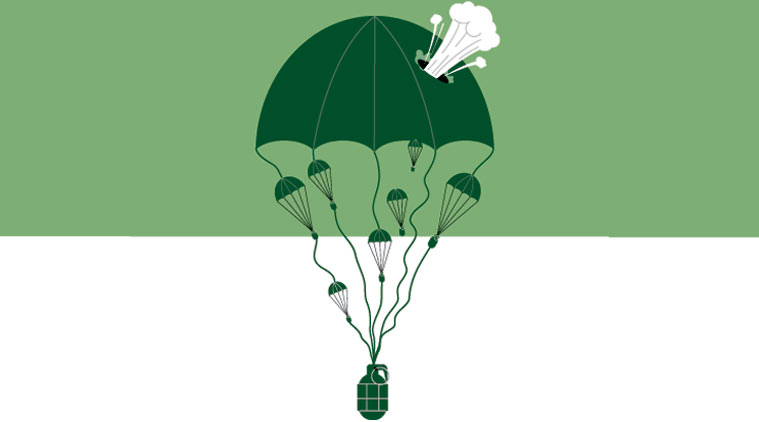
With military domination having been achieved through well-coordinated operations by the security forces (SF) in Kashmir, a situation, often seen before, is emerging. There is talk of the tide of terror having being overcome and for the next steps towards peace in the Valley. No one can deny the need for the same. However, amid the enthusiasm to exploit the positives of the SF’s achievements, eyes must remain on the scanner because events in the neighbourhood do not augur well for India’s security.
Reports over the last few weeks indicate another surge in Islamic fervour and radical ideology. These are on the rise again in Pakistan even as that country’s authorities pat themselves on the back for having supposedly suppressed the violent groups which create turbulence in its bleak internal security environment. Operation Radd-ul Fasaad is perceived to have cleaned up Karachi’s violent streets and some sectarian terror groups. Operation Zarb-e-Azb has supposedly stabilised the restive North West region of Pakistan. Yet, the jihadi juggernaut initiated by Zia-ul-Haq continues unabated. The “friendlies” find no obstacles in their progress. The recent blockade of Islamabad was executed by Tehreek Labaik Ya Rasool Allah (TLY) with its leader, Khadim Rizvi, becoming the latest rabble rouser. The rally was held to protest a lack of punishment for those allegedly involved in making changes to the Khatm-i-Nabuwwat (finality of the Prophet) declaration for electoral candidates, which have already been reversed.
The TLY is just one of the umpteen “tehreeks” which regularly sprout in Pakistan; this one is linked to the defence of Mumtaz Qadri, the policeman who assassinated Punjab Governor Salman Taseer over the latter’s campaign to dilute blasphemy laws. The authorities were reticent in their approach towards breaking the virtual blockade of Islamabad; Lal Masjid probably still looms large in their memory.
More importantly, the Lashkar e Taiba’s (Jamat ud Dawa) or LeT/JuD leader Hafiz Saeed, once under detention due to US pressure and carrying a bounty of $10 million, has emerged even stronger in his public persona. First, he created waves with the formation of his political party, the Milli Muslim League (MML). When it wasn’t taken too seriously due to not being registered by the Pakistan Election Commission, it was discovered that its candidates Yaqoob Sheikh and Liaqat Ali Khan contested byelections in NA-120 (Lahore) and NA-4 (Peshawar) respectively. In fact, Sheikh even secured 5,822 votes. The MML’s road to the general elections is likely to be facilitated by whatever means. Saeed was released from detention as no charges were pressed — the Pakistan Army appears to be resisting US pressure under strategic guidance from China.
President Donald Trump’s first tweet of 2018 focused on Pakistan’s unwillingness to deliver in the domain of counter terror. He rued the assistance the US has extended to Pakistan which amounted to $33 billion in 15 years and wished to withhold $225 million of aid that was in the pipeline. However, US ability to coerce action out of Pakistan appears much reduced because Pakistan largely controls the logistics of US forces deployed in Af-Pak and can calibrate situations there. The US hot and cold policy is not helpful. On November 17, 2017, US media reported that Congress had decided to remove the clause of “action taken” against the LeT by the Pakistani government, before releasing funds as compensation for Pakistan’s cooperation in the war on terror. All this, along with the lead role Pakistan plays in the recently constituted International Islamic Military Counter Terrorism Coalition (IMCTC), is contributing to its strategic confidence.
A wide political space has emerged in Pakistan’s polity due to the marginalisation of mainstream parties. The Pakistan People’s Party (PPP) is a shadow of its former self and restricted mostly to Sindh. The Pakistan Muslim League (Nawaz) (PML), which has the propensity of bouncing back, is on a path of self-destruction, although largely under the manipulation of the Pakistan Army. Imran Khan’s Tehreek-e-Insaf (TeI) continues to struggle to find space in the mainstream. With elections in 2018, it is apparent that varying shades of political ideology are waiting to jump on the bandwagon.
The LeT/JuD has suddenly found support from an unlikely source. Former president, General Pervez Musharraf, now in temporary self-imposed exile, has endorsed the LeT/JuD stating that he was always very fond of it and its leader Hafiz Saeed, especially for its ability to “suppress” the Indian Army in Kashmir. With Musharraf’s backing, Saeed will be on a roll especially since there is a competing force in Masood Azhar’s Jaish e Mohammad (JeM), which is also making inroads into the terror space. The JeM has returned from the dog house after an earlier attempted assassination of Musharraf. It has shown no intent of garnering political space as yet but is more energetic in its presence in Kashmir, with some recent so-called fidayeen actions against military camps. It has now made additional inroads with the recent fidayeen action with local volunteers against the Letpura police camp in Pulwama.
Musharraf’s backing gives the LeT greater legitimacy and the MML is bound to cash in on this and its goodwill with the deep state. Going by the past pattern of Pakistan elections, the ideological presence in the streets could hardly be converted to any advantage in the ballot box. That could well change because no groundswell in favour of any liberal ideology appears evident.
With the LeT/JuD mainstreamed, it won’t be long before other radical parties follow suit. For all of them, the loyalty towards political Islam is best demonstrated through a stronger anti-India label and that means action in J&K. Leading the pack is the LeT/JuD; the JeM is not far behind. They have demonstrated in the past the ability to act big in terms of triggers. Thus, it may not be J&K alone but the entire Indian space which they could be examining. India’s intelligence agencies, no doubt, have done a commendable job but to keep a determined suicide-type terror squad at bay is never easy.
Pakistan’s Army Chief recently briefed the entire Senate on issues related to foreign policy and security leaving no one in doubt about who is in charge in these crucial areas. His offer of supporting political leaders to find peace with India was punctuated by remarks about Indian intelligence services’ involvement in Pakistan’s internal security issues. General Bajwa also spoke for Saeed, giving him licence to pursue his activities in Kashmir as a free citizen of Pakistan.
By their remarks on Saeed and the ways in which he targets India, both Bajwa and Musharraf may have actually made deniability by Pakistan’s deep state more difficult. Saeed’s henchmen would no doubt be analysing the various actions by ISIS surrogates in Europe and the US and culling the finer points to deploy a similar strategy in South Asia. A deniable support by the deep state to an action which targets Indian space outside J&K, and stays within the rubicon of tolerance in terms of the quantum of casualties, is something that planners in Pakistan would be examining. Military targets in particular, including facilities at cantonments all over India, need to remain on high alert.
India needs to be circumspect about the current achievements in J&K and not be lulled by assumptions about the winter conditions. The hybrid nature of Pakistan’s proxy war demands eyes on the scanner in multiple domains to pick up straws that intelligence organisations require, giving us greater confidence in weathering the emerging threat. Simultaneously, its efforts towards initiatives to stabilise Kashmir and outreach to the restive populace must also continue with vigour. Creating hope in the people with transformational governance and better communication is still necessary.








